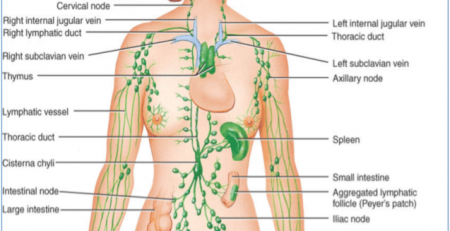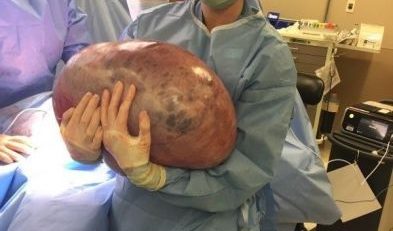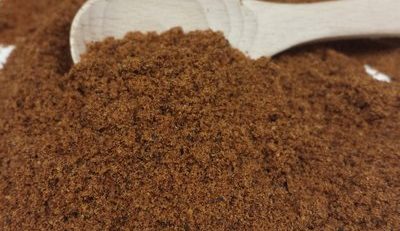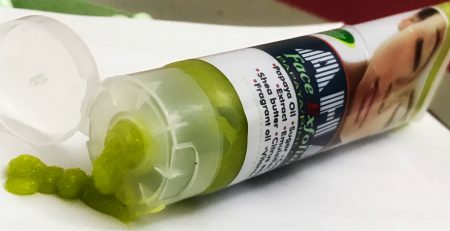SEAL THE GUT PIPE AND SAY GOODBYE TO AUTOIMMUNE DISEASES

The term leaky gut has gained a lot of popularity in recent times. Leaky gut also known as ‘intestinal permeability’ is a condition in which gaps in your intestinal walls start to loosen.
What Is Leaky Gut Syndrome?
The digestive system consists of many organs that collectively break down food, absorb nutrients and water and remove waste products. The gastrointestinal track acts as a barrier between your gut and bloodstream to prevent harmful substances from entering your body.
The intestinal track is designed with villas which absorbs vitamins and other nutrients from digested foods into the bloodstream. When these tiny cheesecloth-like holes get damaged, other larger substances that are not supposed to enter the bloodstream begins to leak into it. These larger substances, such as bacteria, toxins and undigested food particles, pass across the intestinal walls into your bloodstream and create an autoimmune response in the body. This is believed to trigger widespread inflammation.
Research has shown that increased intestinal permeability has been linked to several chronic and autoimmune diseases like type 1 diabetes, rheumatoid arthritis, autism, cancer, multiple scleroses, AD, celiac disease etc.
Yet, there is little evidence to prove that leaky gut syndrome is a serious problem. As a result, it’s not recognized as a medical diagnosis by mainstream physicians. This is a big concern.
On the other hand, many alternative practitioners believe leaky gut syndrome is linked to various conditions, including autoimmune diseases, migraines, autism, food sensitivities, skin conditions, brain fog, diabetes, cancer and chronic fatigue.
What Causes Leaky Gut Syndrome?
Increased intestinal permeability is well known and occurs alongside several chronic diseases, including celiac disease and type 1 diabetes.
1) Bacteria and Gluten: Zonulin is a protein that regulates tight junctions. Research has shown that higher levels of this protein may loosen tight junctions and increase intestinal permeability. Two factors may stimulate higher zonulin levels. There is consistent evidence that gluten increases intestinal permeability in people with celiac disease. High meat consumption introduces endotoxines into the blood stream.
2) Inflammation: Research shows that higher levels of inflammation or the long-term use of non-steroidal anti-inflammatory drugs (NSAIDS), such as aspirin and ibuprofen, may increase intestinal permeability. Foods that cause inflammation include sugar, high-fructose corn syrup, processed food, alcohol, SMG, artificial trans fat, vegetable and seed oils, processed meat, fried food, refined flour, dairy, artificial sweeteners, artificial additives, fast food, ice cream.
3) Dysbiosis: This is when there is an imbalance in the gut bacteria. Low levels of healthy gut bacteria may have the same effect. Antibiotics are a culprit for killing both the good and bad bacteria in the gut.
4) Low stomach acid: The stomach acid (hydrogen peroxides) breaks food down in the stomach before moving it to the small intestine. When stomach acid is low, digestion slows down and food stay longer in the stomach which result in fermentation or purification.
5) Too much acidic food: High consumption of Diary and meat products. It takes between 24-72 hours to digest meat which causes purification and introduce a lot of nasty stuff into the bloodstream.
6) Lack of essential nutrients: When the body lacks essential nutrients like Vitamin D, Iron, B12, Magnesium etc.
7) Negative emotions: Anger, fear, worry, stress, grief, Isolation
SYMPTOMS OF LEAKY GUT
- Chronic diarrhoea, constipation, gas or bloating.
- Nutritional deficiencies.
- Poor immune system.
- Headaches, brain fog, memory loss.
- Excessive fatigue.
- Skin rashes and problems such as acne, eczema, or rosacea.
- Craving for sugar or carbohydrates.
- Arthritis or joint pain.
- Depression, anxiety, ADD, ADHD.
- Autoimmune diseases such as rheumatoid arthritis, lupus, celiac diseases or Crohn’s
HEAL LEAKY GUT
Following a healthy diet plan and lifestyle changes great way to improve your digestive health:
1) Cooked Vegetables: Broccoli, Brussels sprouts, cabbage, arugula, carrots, kale, eggplant, beetroot, Swiss chard, spinach, ginger, mushrooms and zucchini.
2) Roots and tubers: Potatoes, sweet potatoes, yams, carrots, squash and turnips.
3) Fermented vegetables: Kimchi, sauerkraut, tempeh and miso.
4) Fruits: Coconut, grapes, bananas, blueberries, raspberries, strawberries, kiwi, pineapple, oranges, mandarin, lemon, limes, passion fruit and papaya.
5) Sprouted seeds: Chia seeds, flax seeds, sunflower seeds and more.
6) Healthy fats: Avocado, avocado oil, coconut oil and extra virgin olive oil.
7) Fish: Salmon, tuna, herring and other omega-3-rich fish.
8) Herbs and spices: Turmeric, ginger, garlic, cinnamon, sage and other drying herbal tea.
9) Beverages: Bone broth, green teas, coconut milk, nut milk.
10) Probiotic food: Saukrates, fermented drinks, ACV, pickled veggies, and kombucha.
11) Nuts: Raw nuts including peanuts, almonds and nut-based products, such as nut milks.
12) Supplements: B12, Magnesium, Iron, Vitamin D are some of the supplements that will support healing from leaky gut.
13) Positive Emotions: Show gratitude, Pray, meditate, build community, listen to good music, love life, love yourself
NB: Avoid raw vegetables and cold drinks while treating leaky gut.
It may take between 3-6 months to finally heal from leaky gut. Maintaining a healthy lifestyle can prevent a recurrence of leaky guts.









